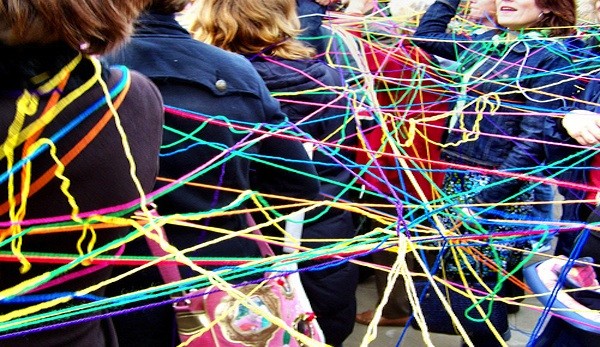It's an amazing time to be a learner - Will Richardson

Your personal learning network is not just a network of people you learn from. A "pln," as enthusiasts call them, is a network of people who are learning together. I was given this essential lore - and truth be told, much of what I know about social media in education - by Will Richardson. The reciprocal nature of learning networks is only the latest useful insight Richardson has given me and the rest of his network. In part, this blog post and interview is a form of reciprocation: you know you have succeeded as an educator when your students start teaching to others what they learned from you.
Five years ago, I started teaching university courses on social media issues because I was growing concerned about the need for students to think seriously about matters of identity, privacy, community, civic engagement that arise from their own texting and Facebooking. I had experience thinking about these issues, but I realized at the beginning of my teaching adventure that this experience did not mean I knew how to use blogs, wikis and other Web media in classrooms as effectively I had learned to use them in my intellectual, professional, and personal life. I browsed blogrolls and looked at what resources were being bookmarked with the tag education and technology. It took me about two minutes to find that all links lead to Richardson's blog, Weblogg-ed, and to his book, Blogs, Wikis, Podcasts, and Other Powerful Web Tools for Classrooms. Richardson's pln is the size of a small city, to judge by the success of this book alone - not too many other how-to books about technology in the classroom have sold more than 50,000 copies.
From the beginning, Richardson rang true to me: the read/write web is not just a gimmick for boosting student engagement - it's an affordance for a student-centric, project-based, collaborative, inquisitive, reflective pedagogy. "Connective writing," as Richardson calls it, is not just about composition using hyperlinks, it's about ways to think systematically and communicate effectively about the connections between ideas - an essential skill in a networked world. And Richardson's practical tips are embedded in a narrative about new literacies and classroom innovation. I was inspired to read Richardson's accounts of brilliant projects, (many of which I adapted for my Cal and Stanford students), that originated in fifth grade classrooms.
If I had to reduce to one sentence my advice to teachers who want to use the web in the classroom, it would be "Read Richardson's book and follow his blog." Taking a lesson from Richardson, I added him to my Twitter pln, and started following some of the people he was following, such as Bud "Bud the Teacher" Hunt. I recently talked with Richardson via videoskype and wanted to share his current thinking on concepts like "passionate participation" and "connectedness literacies," and his concrete examples that illustrate why and how it is, in his words, "an amazing time to be a learner."
Image credit: Binkiexxx http://www.flickr.com/photos/8596221@N07/2923434507/
Comments